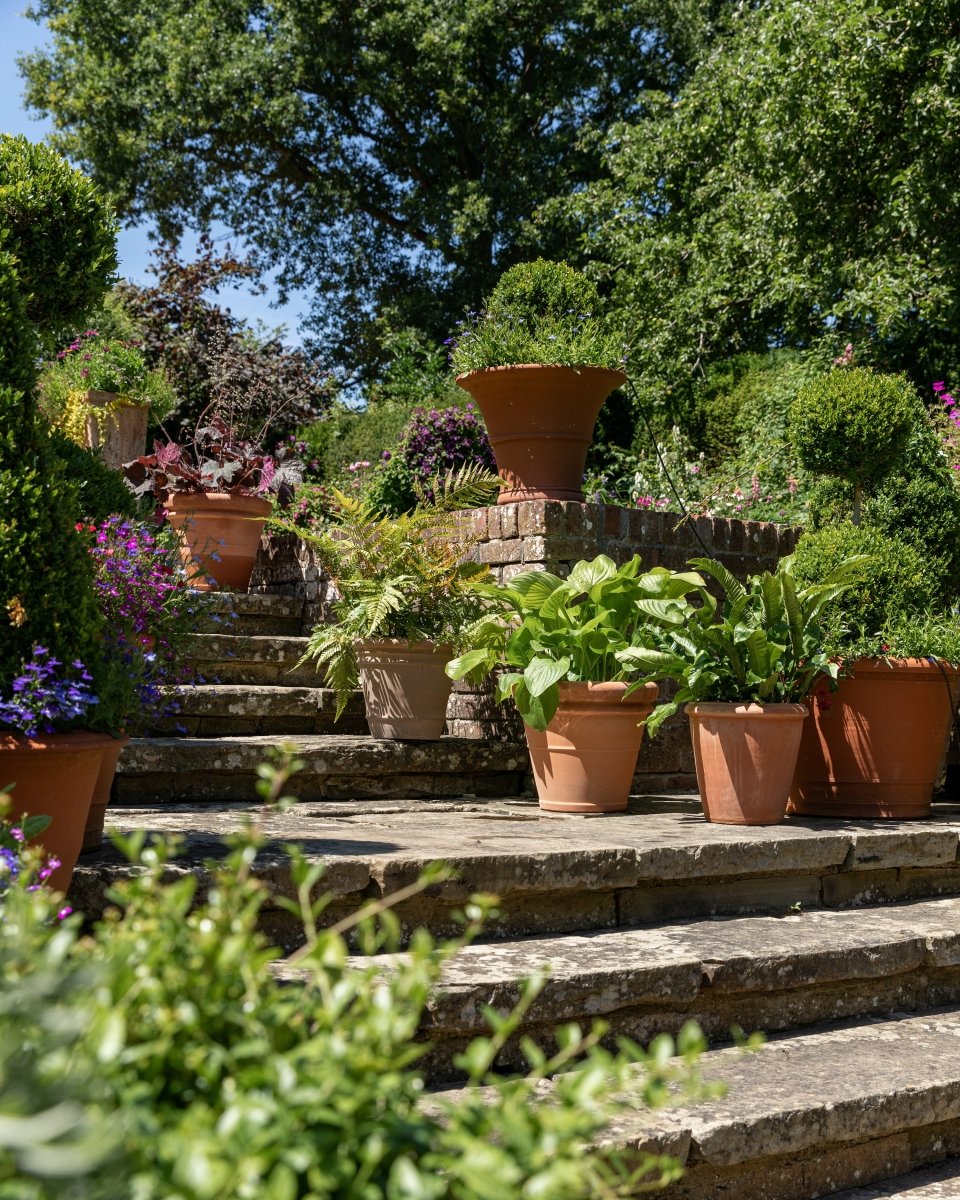Most plants we enjoy in our gardens in the UK are hardy, which means they can survive severe frost, but there are also more exotic specimens which require some care.
London gardens are less impacted by a drop in temperature as the city is a heat bubble with all the buildings and vehicles raising the temperature. However if it is likely to drop below zero degrees then it is also worth being cautious and protecting some of the more tender plants.
General Plant Care
Here are some handy tips that apply to most garden plants.
-
Mulching less-hardy plants can protect the roots from frost or ice, but also if an organic mulch like leaf-mould or manure is used it will breakdown slowly and give the plant nutrients to help the plants burst into growth in spring.
-
If planting new outdoor plants make sure the ground is not frozen or overly waterlogged. This can be especially important with clay soils which can become sodden and unworkable. It can also become impenetrable to roots, so if you must plant in these conditions add drainage and work the soil to aerate it.
- Now is the perfect time to plant bare root shrubs, roses and trees which are dormant but can make a great start and often overtake larger potted specimens in one growing season.
- Established plants should not need watering in winter, and doing so could cause root-rot as the already wet soil will not be able to drain. A gravel mulch or improving the drainage can avoid this problem with Mediterranean plants like lavender that can become too water-logged in winter.
- Container planting will still require watering, and no matter how much rain falls, the surface are of a plant pot will not be great enough to sufficiently sustain the plant. Reduce watering for summer flowering summer plants like salvias and lavenders.
-
Pay attention to your soil PH. Many winter plants and shade lovers like cyclamen and skimmia require ericaceous soils which have a high acidity.
Overwintering
Overwintering means bringing a plant undercover over the winter months in order to protect it from the impact of frost or wet. There is a difference between a dark shed, unheated greenhouse, heated greenhouse, and our homes.
Just because a plant is brought into a heated environment doesn't mean it will thrive like it would in the summer months or that it will become somewhat 'evergreen'. Actually bringing a plant into a centrally heated home with a lack of airflow can mess with its natural cycle and damage the plant. Perennials for example are evolved to die back to the ground, feed the roots, and put on greater growth in spring when light levels are greater.
Protecting a plant in winter also means that a strategy has to be in place for introducing this plant back to the outdoor environment in spring or summer. This is called hardening off, by which a cold frame or other technique is used to gradually acclimatise the plant to the environment again. Taking a plant from a heated space to an unheated one with a large difference in temperature will create shock and weaken or even kill the plant.
Different treatments are suitable for different plants and should be research individually as there would be too many to list here. Below are some of our bestsellers.
Citrus & fig trees
Contrary to popular belief, these plants are hardy to quite low temperatures. Not only that, they need a period of cold in order to recognise the change in season and start to put energy into flower production in spring which leads to fruit in summer. Interrupting this natural cycle by bringing into a warm home can reduce the fruit crop.
Dicksonia Antartica & tender ferns
Dicksonia Antarctica can be hardy to below freezing, however as these are expensive specimens it is best not to allow them to remain unprotected under 1 degree. The best protection is place is straw in the crown and a horticultural fleece around the trunk. It will need checking that it doesn't fully dry out with all this covering. Small potted specimens can be brought into a cool sheltered space like a garage.
Musa Basjoo
The hardy Japanese banana can still benefit from winter protection to ensure strong growth next year, it is also a good exercise to clean up the leaves and plant which are likely to be looking a little tired and unappealing by autumn. A full guide on how to protect the Musa is available from the RHS here.
Salvia & tender perennials
Some exotic perennials aren't fully hardy in the UK, like Salvia 'Amistad', this tender-perennial that needs winter protection from frosts. If unsure the best resource is the RHS hardiness rating freely available on their vast plant database. The more exotic and late flowering a plant is, the higher likelihood it is from a region south of the equator and it isn't acclimatised to harsh winter conditions.





















